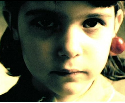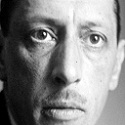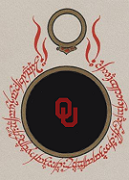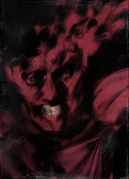|
Pinball posted:Any good books about the process of Denazification in Germany post-WWII? I'm really interested in how the country and its people, as a whole, came to terms with aiding and abetting the Nazis and how their children responded. Short version: It's still under the carpet. While German perceptions of the holocaust has changed gradually, much of the de-nazification took place by people burning their party membership books. (/troll) I'd live to read a book on this subject as well.
|
|
|
|

|
| # ? May 14, 2024 04:11 |
rasser posted:Short version: It's still under the carpet. While German perceptions of the holocaust has changed gradually, much of the de-nazification took place by people burning their party membership books. Probably the closest thing that comes to my mind right away is Father/Land: A Personal Search for the New Germany by Frederick Kempe. Unfortunately, I can't really say that I recommend it. Don't let the University Press publisher fool you, Frederick Kempe is not an academic or a professional historian in any capacity. He does occasionally make an interesting point or observation, but he's also far too eager to paint Germany (and Germans) with broad brushstrokes, and much of his arguments are made on evidence that is little more than anecdotal. There's also a pervasive tone throughout the novel that Kempe (born and raised in the United States to German parents) is really playing up some sort of deep existential dilemma or guilt that he finds himself in purely because he has a German last name. I distinctly remember at one point in the book where he's talking about a bad experience he had with some kind of rude person in the service industry in Germany, and how his mind traced that immediately back to Germans just being inherently fascistic (itself a very interesting topic that has been researched, published, debated, and debunked to death). If you're looking for something a bit better but less concrete, I'd start by reading (or at least skimming) Albert Schweer's autobiographical Inside the Third Reich and then immediately following it with the mass of scholarship, both in the form of monographs and articles, that call Speer out for his massive amount of bullshit and whitewashing of his own involvement in the atrocities of the regime. While you won't get a very concise, single-volume treatment of German denazification or how Germans view the past, you will definitely develop a good understanding of the conflict that exists in Germany between the two views. There's (appropriately) a great German word which means "coming to terms with the past", Vergangenheitsbewältigung. Do a Google search for that and denazification and you should come up with some interesting reading.
|
|
|
|
|
Drone posted:There's (appropriately) a great German word which means "coming to terms with the past", Vergangenheitsbewältigung. Do a Google search for that and denazification and you should come up with some interesting reading. Wow. That is my new favourite German word. Step aside, Götterdämmerung! Edit: and thanks, Drone
|
|
|
|
On the Denazification I did pick up this book http://www.amazon.com/Exorcising-Hi...orcising+hitler About the occupation and denazification efforts in Germany. I thought it was rather fascinating.
|
|
|
|
Anyone who likes Civil War history, I finally got around to reading The State of Jones, which is about a county in Mississippi where deserters formed a military force, declared their loyalty to the US, and used guerrilla warfare on Confederate troops. I really liked it. I like that it gave agency to the slaves rather than talking about them as victims. And the description of the siege of Vicksburg is so good. And the description of Reconstruction in Mississippi is so disheartening. Overall, I'd say, check it out. http://www.amazon.com/State-Jones-Sally-Jenkins-ebook/dp/B002DBIODE/ref=sr_1_2?ie=UTF8&qid=1394590667&sr=8-2&keywords=free+state+of+jones
|
|
|
|
Finished Bully Pulpit today. Cried a little bit at Taft and TR's reconciliation at the end. Really great book, with a very interesting perspective on the lives of both Taft and Teddy, and also of the women who were instrumental in their lives.
|
|
|
|
patb01 posted:On the Denazification I did pick up this book http://www.amazon.com/Exorcising-Hi...orcising+hitler About the occupation and denazification efforts in Germany. I thought it was rather fascinating. Cool, thanks. Will check it later today.
|
|
|
|
Does anyone have a recommendation on the Rote Arme Fraktion/Baader-Meinhof group? Ideology, effect of their actions in view of the BDR taking a political right turn and becoming more fascist or not, comparison to how "terror" is perceived in today's Germany post-9/11, the different groups' actions, Stammheim conspiracy theories, what individuals did after the fight was over, perhaps comments on recent years' media coverage? Like, everything basically. I grew up in an environment where the city guerilla fight was cool and someone to be discussed seriously, and tapped phones would make your collective the most hip place to be. As always, in retrospect the communists were the ones with plans, connections and serious preparations laid out for when the real fighting began, and there would no place for freak romantics but that's a whole other story. I read Fidel, Lenin, Debray, Luxemborg as an adolescent. It's part of my upbringing typical for some parts of Europe in the seventies, and for many years I left it behind, but RAF always fascinated me. The group that really took the fight the whole way and is still debating on the German left (I read Christian Klars criticism of Inge Viett today, but fractioned-marxist German is unfortunately too hard for me...). I think they were monsters, but I want to know the monster story. Edit: oh actually, I read a book on Rosa Luxemborg, not her own works. Any recommendations in particular? rasser fucked around with this message at 10:10 on Mar 16, 2014 |
|
|
|
Just ordered myself a copy of this: Pretty excited. Christopher Clark is pretty excellent (His book Iron Kingdom is really very good if you're interested in Prussia). Not to mention it's the 100th anniversary of the outbreak of World War I this year.
|
|
|
|
Endman posted:Just ordered myself a copy of this: I read it for class. It's really good.
|
|
|
|
KoldPT posted:Finished Bully Pulpit today. Cried a little bit at Taft and TR's reconciliation at the end. Does anybody know if Goodwin is still ripping other people off or making things up? I haven't read anything of hers in years.
|
|
|
|
Endman posted:Just ordered myself a copy of this: Iron Kingdom was excellent indeed, I shall have to pick this up.
|
|
|
|
Does anybody have any good reccomendations for books on relations of western powers with China in the 1800s and possibly late 1700s. Main line of inquiry would be the Opium wars but I am looking for things that happened prior and post those events. Academic is fine with me.
|
|
|
|
rasser posted:Does anyone have a recommendation on the Rote Arme Fraktion/Baader-Meinhof group? The professor of my Terror and Terrorism class had us read Bommi Baumann's How It All Began (translated by Heinrich Boll and Daniel Cohn-Bendit), which is a personal account of a member of the June 2nd Movement in the late sixties/early seventies. He dropped out after the arrests of Baader and Meinhof in 1972, but he gets into why and how the movement developed. He wrote it in 1975, so it basically cuts off there but it includes articles, letters/leaflets, and transcriptions of interviews from the early days of what would become the Red Army Faction. Lucania fucked around with this message at 05:37 on Mar 18, 2014 |
|
|
|
I've decided to have to have a look back at what I've read in the past three years and came up with the following list and my thoughts on the books (if no-one minds): The Bloody Crucible of Courage: Fighting Methods and Combat Experience of the Civil War (Brent Nosworthy): A very technical, challenging read, it provides some interesting analysis of the fighting methods and relative worth of several different fighting methods used in the Civil War, including naval warfare. It was interesting but it feels more like an academic thesis. Interesting but challenging. Battle Cry of Freedom: The Civil War Era (James M. McPherson): A good primer into the Civil War, it doesn't get into as much detail as I'd like but it was interesting enough and deals with both political, social and military aspects of the war. Leans towards the Union and didn't feel completely unbiased, which wasn't an issue for me personally. American Civil War: A Narrative (Shelby Foote): Pretty much the classic Civil War book, it is an extremely compelling read and is pretty even-handed and I feel deals fairly with both sides of the conflict. I recommended read but quite a considerable time expenditure necessary in order to complete the book. Crimea (Orlando Figes): A pretty interesting read considering I didn't know much about the conflict prior to reading this book. It brings forward the facts and seemed at least at the time to be fairly even-handed in its treatment of both sides. Would have been interested in finding out more about the smaller participants within the conflict though. The Great Game: On Secret Service in High Asia (Peter Hopkirk): Felt ever so slightly biased towards the British and even without condemning the Russians directly the entire book seemed to always drive the narrative towards the side of the British. Was also paced slightly weirdly, with some events skimmed over while others seemed to have an unnecessary level of detail, especially when describing the travels of British adventurers. Grey Wolves: The U-Boat War 1939-1945 (Philip Kaplan): An extremely light read and a pretty pop history approach to the U-boat campaign, did provide a few interesting tid-bits but I wouldn't recommend it. The Battle for Spain: The Spanish Civil War 1936-1939 (Antony Beevor): A very depressing read, it paints no side of the conflict in a very good light. I've read some Antony Beevor stuff before and I have a love/hate relationship with his book but this was one of his more interesting books. Gettysburg (Stephen Sears): I primarily read this book in order to have a point of contrast with Civil War: A Narrative, and it didn't dissapoint. It's very well researched and pretty in-depth, probably one of the better single-battle books I've read. The War of 1812: in the Age of Napoleon (Jeremy Black): This was a pretty good primer into the war but it wasn't really heavy-weight enough for me. It does touch on all aspects of the war but I found it lacking and the descriptions of the battles were sparse to say the least. Villa And Zapata: A Biography of the Mexican Revolution (Frank McLynn): A pretty interesting biographical piece about the two most important leaders of the Revolution and how they were tied to each other. It paints Villa as a man with many faults but gives enough description to make him feel very life-like. Also does a good job of explaining the major actor and events of the era. Dreadnought and Castles of Steel (Robert K. Massie): I'm currently still reading these but they are very interesting so far and I would recommend them considering what I've read so far. Some very in-depth analysis of the causes of WWI and the main actors around the time of the naval build-ups of Britain and Germany.
|
|
|
Tekopo posted:The Great Game: On Secret Service in High Asia (Peter Hopkirk): Felt ever so slightly biased towards the British and even without condemning the Russians directly the entire book seemed to always drive the narrative towards the side of the British. Was also paced slightly weirdly, with some events skimmed over while others seemed to have an unnecessary level of detail, especially when describing the travels of British adventurers. I've come this close to ordering this book several times but never pulled the trigger -- usually every time I read Kipling I think about it. How long a period does it cover and how comprehensive is it?
|
|
|
|
|
Hieronymous Alloy posted:I've come this close to ordering this book several times but never pulled the trigger -- usually every time I read Kipling I think about it. How long a period does it cover and how comprehensive is it? It briefly talks about the Crimean war and the Russo-Japanese War, but only to the extent of their effect on the Great Game area. The book really goes into depth about the european explorers to the region, both Russian and British and their interactions within the area are really the focus of the book, although the political aspects of the Great Game also have an important role within the book. I might have appeared to be negative in my mini-analysis of the book but really it's not bad and it is a compelling read and a great intro into that particular era and region of history. I would still recommend it despite my slight negativity.
|
|
|
|
Lucania posted:The professor of my Terror and Terrorism class had us read Bommi Baumann's How It All Began (translated by Heinrich Boll and Daniel Cohn-Bendit), which is a personal account of a member of the June 2nd Movement in the late sixties/early seventies. He dropped out after the arrests of Baader and Meinhof in 1972, but he gets into why and how the movement developed. He wrote it in 1975, so it basically cuts off there but it includes articles, letters/leaflets, and transcriptions of interviews from the early days of what would become the Red Army Faction. Great, thanks.
|
|
|
|
Read the last few pages, didn't see any relevant posts, sorry if this has been done: I'm looking for a general history/survey of South Asia. I'd say I have an above-average knowledge level of the region (as in, paid attention in high school/gen ed classes in college): aware of the Indus Valley hearth, the Mauryans, Guptas, Mughals, etc., but wanting something to weave it all together. I know this covers a LOT of history, but I figure someone has to have written a good "intro to South Asian" history book.
|
|
|
|
TipTow posted:Read the last few pages, didn't see any relevant posts, sorry if this has been done: I don't know if anyone has written a good general history of the entire area. You may want to start with The Cambridge History of Southeast Asia. Other common suggestions that I haven't read: Modern South Asia: History, Culture, Political Economy by Sugata Bose and Ayesha Jalal Southeast Asia: An Introductory History by Milton Osborne Southeast Asia: A Concise History by Mary Somers Heidhues A longer list of books here: http://www.questia.com/library/history/asian-history/southeast-asian-history/southeast-asian-history Here are some good books about specific regions that I have read: India After Gandhi by Ramachandra Guha Midnight's Descendants: A History of South Asia since Partition Hardcover by John Keay India: A History by John Keay A History of Modern Burma by Michael Charney
|
|
|
|
dokmo posted:Southeast Asia: An Introductory History by Milton Osborne This was good as I remember it, but looking at the index it doesn't have much to do with the Indian subcontinent at all, which seems like TipTow's area of interest. In the same class, we used your other suggestion of John Keay's India: a History, which was also pretty nice and accessible. That one would be my specific recommendation for TipTow.
|
|
|
|
Thanks for the recommendations! I think I'll start with Keay's India: A History and go from there.
|
|
|
|
Are there any good books on the history of microbiology and epidemiology?
|
|
|
|
I scored a few good finds at a local used book store the other day. I got a copy of Hochschild's King Leopold's Ghost (  ) for $4.00. ( ) for $4.00. (  ) It's been brought up ITT before, and I've already read it, but I couldn't pass up a good deal on a nice copy of it. ) It's been brought up ITT before, and I've already read it, but I couldn't pass up a good deal on a nice copy of it.Also for about $4.00, I decided to try Gwendolyn Leick's The Babylonians: an Introduction. It looked alright at a quick glance through it. My big find was Neil MacGregor's A History of the World in 100 Objects. It's obviously not an in-depth look at any period or culture, but I like the approach the book takes. It uses 100 art historical objects to discuss events and theories in human civilization. The book has an anthropological lean to it, especially since the first objects are stone age tools and art. It gets into more detail of specific events by way of later objects, but it still seems to take broad strokes, as I would expect from a survey on all of history. MacGregor is a curator at the British National Museum, and all the objects are taken from their collection, but he's pretty straightforward and honest about his perspective on things. I've been enjoying it so far and I'd recommend it if you're into art history or might want to try an art historical perspective.
|
|
|
|
Elderbean posted:Are there any good books on the history of microbiology and epidemiology? Do you mean on the institutionalized sciences that existed since the late nineteenth century, or the study and thought about diseases and their spreading in a more general sense, also including premodern ideas that are now considered wrong?
|
|
|
|
Antwan3K posted:Do you mean on the institutionalized sciences that existed since the late nineteenth century, or the study and thought about diseases and their spreading in a more general sense, also including premodern ideas that are now considered wrong? The modern sciences, but reading up on old theories could be fun to.
|
|
|
|
I just ordered Infidels by Andrew Wheatcroft on a whim as it was on a sale. Anyone here read it and have any thoughts about it?
|
|
|
|
saihttam posted:I just ordered Infidels by Andrew Wheatcroft on a whim as it was on a sale. Anyone here read it and have any thoughts about it? You will like it or dislike it depending on what you are looking for.
|
|
|
|
Like he is pretty good at each side's perception of each other and how they were not entirely true, but if you are looking at it as a western christian who is looking for differences between muslim and western christiandom you will find it.
|
|
|
|
I've been on a huge biography kick lately, reading all of Robert Caro's LBJ books (I'm about halfway through Master of the Senate; it's easily my favourite one so far) and I'm wondering if there's any other presidential biographies at about the same level: not fluff pieces, not ghostwritten autobiographies (like Reagan's awful memoir), but something along the lines of Caro's books or Richard Ben Cramer's What It Takes.
|
|
|
barkingclam posted:I've been on a huge biography kick lately, reading all of Robert Caro's LBJ books (I'm about halfway through Master of the Senate; it's easily my favourite one so far) and I'm wondering if there's any other presidential biographies at about the same level: not fluff pieces, not ghostwritten autobiographies (like Reagan's awful memoir), but something along the lines of Caro's books or Richard Ben Cramer's What It Takes. I haven't read Caro's books but William Morris's three volume biography of Theodore Roosevelt seems to be pretty universally praised.
|
|
|
|
|
If got a spare audible credit and I was wondering if people had a recommendation for a unique, interesting and/or entertaining look at something, I would prefer nothing that focuses too much on military matters or 20th century history but neither is a deal-breaker.
|
|
|
|
Stravinsky posted:Like he is pretty good at each side's perception of each other and how they were not entirely true, but if you are looking at it as a western christian who is looking for differences between muslim and western christiandom you will find it. Ok, thanks. My layman history knowledge is from a western point of view so I figured it could be an interesting read. I thought I recognized the title but couldn't remember from where and now I learned he researched the book for 17 years 
saihttam fucked around with this message at 12:23 on Apr 3, 2014 |
|
|
|
Rumda posted:If got a spare audible credit and I was wondering if people had a recommendation for a unique, interesting and/or entertaining look at something, I would prefer nothing that focuses too much on military matters or 20th century history but neither is a deal-breaker. Some thoroughly entertaining books I've read over the last year or so: Naples '44: A World War II Diary Of Occupied Italy by Norman Lewis (not really about the war at all) quote:As a young intelligence officer stationed in Naples following its liberation from Nazi forces, Norman Lewis recorded the lives of a proud and vibrant people forced to survive on prostitution, thievery, and a desperate belief in miracles and cures. The most popular of Lewis's twenty-seven books, Naples '44 is a landmark poetic study of the agony of wartime occupation and its ability to bring out the worst, and often the best, in human nature. In prose both heartrending and comic, Lewis describes an era of disillusionment, escapism, and hysteria in which the Allied occupiers mete out justice unfairly and fail to provide basic necessities to the populace while Neapolitan citizens accuse each other of being Nazi spies, women offer their bodies to the same Allied soldiers whose supplies they steal for sale on the black market, and angry young men organize militias to oppose "temporary" foreign rule. Yet over the chaotic din, Lewis sings intimately of the essential dignity of the Neapolitan people, whose traditions of civility, courage, and generosity of spirit shine through daily. The Last Duel: A True Story of Crime, Scandal, and Trial by Combat in Medieval France by Eric Jager quote:In 1386, a few days after Christmas, a huge crowd gathers at a Parisian monastery to witness what will become the nation's final "trial by combat"—a court-ordered duel intended to let God determine which of the two men was telling the truth. The dramatic true story of the knight, the squire, and the lady unfolds during the devastating Hundred Years' War between France and England, as enemy troops pillage the land, madness haunts the French court, the Great Schism splits the Church, Muslim armies threaten Christendom, and rebellion, treachery, and plague turn the lives of all into toys of Fortune. Bringing to life a colorful, turbulent age and three unforgettable characters caught in a fatal triangle of crime, scandal, and revenge, The Last Duel is at once a moving human drama, a captivating detective story, and an engrossing work of historical intrigue. Florence Nightingale by Mark Bostridge quote:Bostridge's portrait of Florence herself is also even-handed and sympathetic. She emerges as a lover of humanity rather than a lover of individual humans, with a mind that could scythe through obfuscating bureaucratic reports on hospital conditions or the iniquitously inefficient Poor Laws, which had rotted deep into the 19th-century social psyche. She bore long grudges, enjoyed intrigue and, despite her lamplit patrols among the wounded at Scutari, had, as her friend the poet Arthur Clough put it, 'a high, steady benevolence' rather than the warmth of human empathy. Though her prodigious cleverness and engagement had dazzled when she was young, in celebrated middle-age she was formidable rather than charming - even her loyal Aunt Mai described her as 'often cold and dry, some might say cross'. Craze: Gin and Debauchery in an Age of Reason by Jessica Warner quote:Rotgut gin—cheap, widely available, and remarkably potent—was the overwhelming drug of choice among London’s working poor in the early 1700s. Sold for pennies in taverns and squalid gin shops, on street corners and even in jails, gin was the original opiate of the masses, plunging England’s capital into chaos and giving rise to the first modern drug scare. Craze is an engaging social history of gin and the men and women whose lives it touched: the poor who drank it, the distillers who made it, the members of Parliament who feared it, and the prime minister who relied on its tax revenues to line his pockets. Offering a rich political, social, and economic history of gin and the London of Hogarth and Dr. Johnson, Craze will intoxicate you with its blend of erudition, style, and wit. The Black Count: Glory, Revolution, Betrayal, and the Real Count of Monte Cristo by Tom Reiss quote:Born to a black slave mother and a fugitive white French nobleman in Saint-Domingue (present-day Haiti), Alex Dumas was briefly sold into bondage but then made his way to Paris where he was schooled as a sword-fighting member of the French aristocracy.
|
|
|
|
I'm about to finish Roger Crowley's City of Fortune as suggested here; I really liked it and now I'm interested in his other books, I'll be buying them later. Still, the book left me interested in other related topics, like medieval mercenaries, the other Merchant Republics and the Ottoman Empire, any book suggestions for those topics?
|
|
|
|
barkingclam posted:I've been on a huge biography kick lately, reading all of Robert Caro's LBJ books (I'm about halfway through Master of the Senate; it's easily my favourite one so far) and I'm wondering if there's any other presidential biographies at about the same level: not fluff pieces, not ghostwritten autobiographies (like Reagan's awful memoir), but something along the lines of Caro's books or Richard Ben Cramer's What It Takes. If you like Caro, you absolutely must read The Power Broker, his biography of Robert Moses. It's a single volume and a masterpiece. It's focused on power and how it is accumulated and used, like the LBJ series, but it looks at the city level rather than Congress/federal.
|
|
|
|
radlum posted:I'm about to finish Roger Crowley's City of Fortune as suggested here; I really liked it and now I'm interested in his other books, I'll be buying them later. Still, the book left me interested in other related topics, like medieval mercenaries, the other Merchant Republics and the Ottoman Empire, any book suggestions for those topics? As you might imagine, there is a lot published on the Ottoman Empire. I'm partial to Kinross's The Ottoman Centuries, but I haven't touched it in years and may just have fond memories because it's the first book I ever read on Ottoman history and probably the only dedicated Ottoman book in my collection. It's also a much broader book, in that it covers the Ottoman Empire from birth to death, so it may not be what you're looking for. I'm glad you liked City of Fortune though, it's really good.
|
|
|
|
The Kindle version of Churchill's The Gathering Storm is on sale for $2.99 today if anyone is into that kind of thing.
|
|
|
|
I'm about 25% through Sundown Towns by James Loewen (of Lies My Teacher Told Me fame), and while it's interesting, I find myself spacing out (I'm listening to the audiobook) because it's very repetitive. But, an interesting look at residential segregation in America.
|
|
|
|

|
| # ? May 14, 2024 04:11 |
|
Any good books on the rise of the Nazi Party in Germany and maybe the rise of fascism in Europe in general? I'm more interested in German history, German perspective, and politics rather than yet another random book about the world war. Like, more of a heavy focus on the pre-war events. I'm reading Iron Kingdom, that history of Prussia, and it's pretty great. Will be moving on to his book on WWI, Sleepwalkers.
|
|
|















 Yes, it's like a lava lamp.
Yes, it's like a lava lamp.











 Enter sadman
Enter sadman




